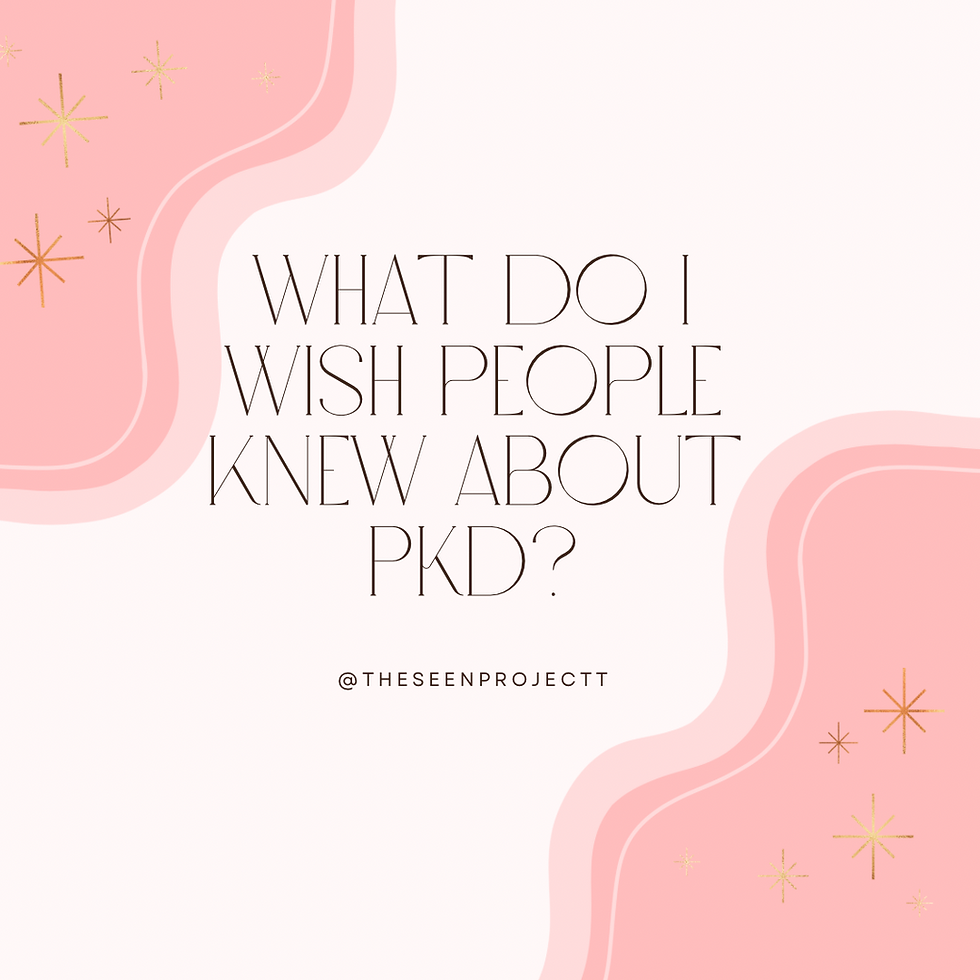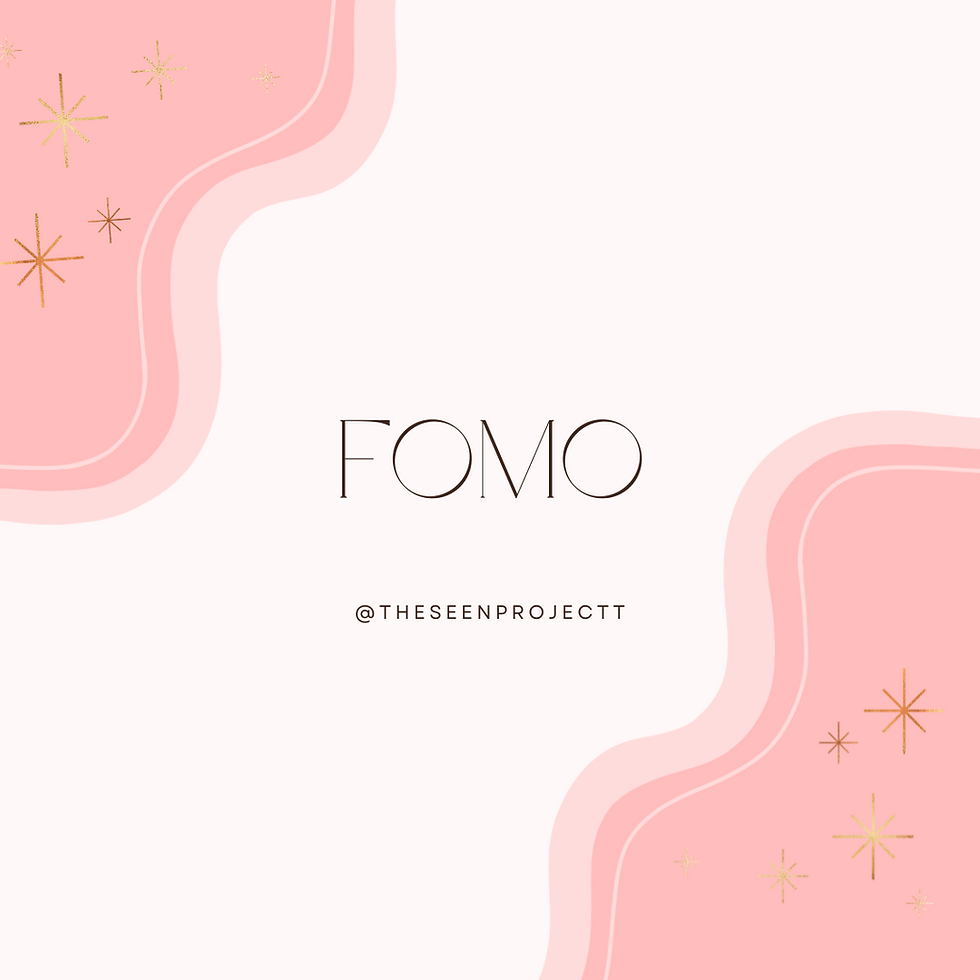What do I wish people knew about PKD?
- Alexis Trischler

- Feb 7, 2025
- 3 min read
Updated: Feb 10, 2025

What do I wish people knew about PKD? That is a relatively easy answer. Polycystic Kidney Disease (PKD) has a long list of symptoms, Some being worse than others. Symptom severity is different for everyone. For example, The symptom that impacts me the most is chronic fatigue, while for others it could be high blood pressure. I find that the 2 days after an event or a busy day to be very difficult. With chronic fatigue comes another long list of symptoms, specifically for me, I find that I experience muscle aches and pains in my back, arms, and legs. A typical 8-hour school day might not seem too difficult, but the first thing I do when I get home from school is take a nap. You may read that and think that sounds lazy, I can understand that! Let me explain…
As someone who struggles with chronic fatigue, it’s something I get embarrassed to explain to people. It’s easy to tell someone that some days my chronic illness requires me to get extra rest, but how can you tell someone that getting out of bed some mornings causes physical pain? Saturdays are usually what I call my “rest days”, after going to school for a week my body feels like it wants to shut down and crumble under me.
Being 17 while running an almost official non-profit on my own while being a full-time student is difficult. I love living my life on a go-go-go/constantly busy style, and occasionally there are times when my body allows me to live that way. However, then I am reminded of how much I pushed myself by spending 2 or more days in bed. Chronic Fatigue isn’t just being tired, chronic fatigue is also brain fog, muscle pain, difficulty sleeping, and the list goes on. It’s hard to tell people that basic everyday functions such as getting out of bed or even just moving an inch can cause physical pain.
In my freshman year, I was involved in an after-school club, I loved the club due to it being a hobby of mine I enjoyed! I attended one meeting... I loved the group of people and I met some amazing friends through it. As the year progressed I stopped going to the club meetings because of how much my chronic fatigue was impacting my daily life. I had a good bond with the teacher who ran the club, however it didn't seem as though they understood. I would hear comments being made by the teacher and club members about my “attendance.”
“She never participates”
“She’s never here”
“Is she even a part of this anymore”
I was so tired and needed rest that I chose to skip the club meetings. I knew if I went I wouldn’t enjoy myself or be happy. The teacher would ask me ”Lexie, you coming to ___ club today?” I always dreaded answering, I knew my response would be met with an annoyed sigh and eye-roll. It always hurt me because I knew no matter what I said I would still feel guilty.
I don’t think the guilt around having a chronic illness is talked about enough. It’s always so difficult to say “I’m sorry I can’t because I’m sick” knowing that you’re gonna have to use that “excuse” again and again and again. The guilt of having a chronic illness is an abundance of different emotions, such as: Feeling like you can't do what you want, Feeling like you're letting others down, and Frustration with others not understanding how you feel. It is okay to feel many emotions when struggling with a chronic illness. The most important part about experiencing them is how you deal with them. There are many people around to help support you and guide you through this experience.
Remember: The way someone responds to your illness is NOT your responsibility. Not everyone will understand and that’s OK.









Comments